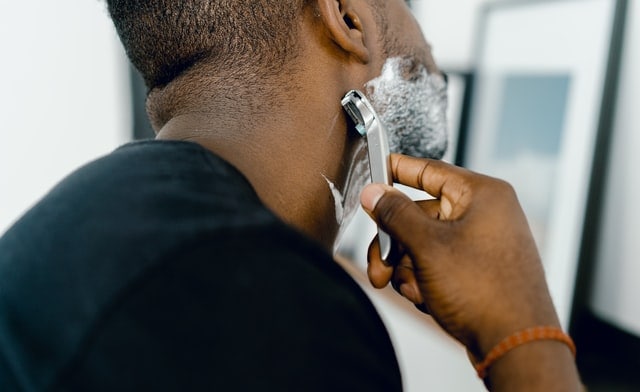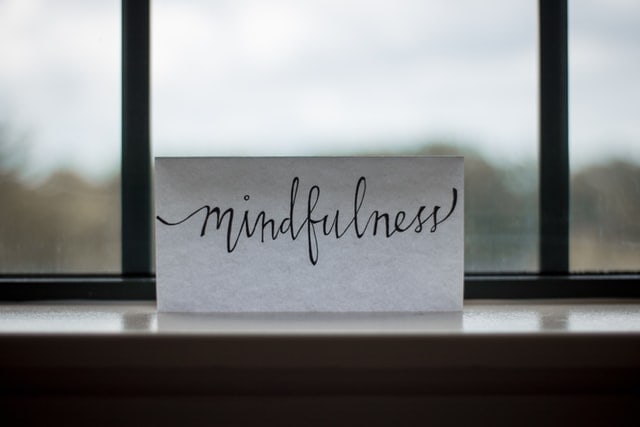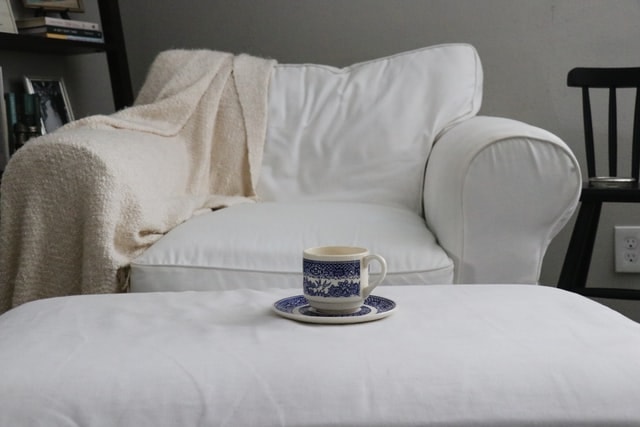In the last year, self-care tips have become more important for people as they deal with the pandemic, isolation and loneliness, anxiety, financial insecurity, and health issues. All of us have become more concerned about our physical, mental and emotional health. The best self-care tips are the ones that help you become the best and healthiest version of yourself.

What is self-care?
The World Health Organisation defines self-care as all that you do to look after your health from a physical, mental and emotional perspective. This includes making positive lifestyle choices such as sleeping well, eating balanced meals and taking the appropriate measures to look after your mental health.
Self-care revolves around the idea of prioritizing your needs and taking care of yourself first before you can do the same for others. In recent times, most self-care tips focus on ideas like spa days and ‘me time’ and these are important, but self-care also means simple steps like eating a nutritious lunch, going for a short walk after dinner or spending quality time with a friend. If you follow the best self-care tips, you can make a great difference in your well-being and general health.
Self-care is a broad term that refers to everything you do for yourself, including the following:
- Personal hygiene
- Lifestyle habits for exercise and relaxation
- Nutrition
- Environmental factors such as social habits and immediate surroundings
- Self-medication
What do the best self-care tips include?
The best self-care tips should bring you these benefits:
- Lowered levels of stress and anxiety
- Improved mental and physical resilience
- Higher capacity to handle and manage stress
- Reduction in impact and occurrence of mental and physical health concerns
When you decide to take care of your mental, physical and emotional health, you should start by focusing on sleep, improving the quality of your diet, getting the right exercise, and adjusting your mindset to boost your mental health. In our busy lives, it might be hard to focus on all of these at the same time, but with some practice, most self-care tips can become a part of your daily habits.

The basics of good self-care tips
When you’re trying to improve how you care for yourself, you should focus on these aspects of your life. With effort and thought, you will be able to identify areas of your life that need attention and can then decide what you need to do to lead a healthier life.
Physical activity
Exercise is one of the most important aspects of self-care. A routine of exercise – whether it is swimming, walking, running, or working out at home – will keep you fit, ward off chronic health conditions, improve existing illnesses or pains, and help your mental health. Exercise has also been found to release feel-good hormones that give you a stronger and more resilient mindset.
Good hygiene and grooming

Maintaining acceptable levels of general and personal hygiene is critical to your self-care. This includes taking care of yourself, your clothing and belongings, and keeping your home clean. We all have different ideas of what good grooming includes and how much time or money we want to spend on it, but any self-care regimen should include basic grooming.
Knowledge and health awareness
When you know what is good for you and what will keep you healthy, you are better equipped to care for yourself. Making an effort to protect yourself, learning about what will make you healthier and more productive, and staying updated on what you need to stock up on to stay healthy – these are important moves towards self-care.
Take time to understand the benefits of the products you use, the habits you follow, and the lifestyle choices you make, so that you are aware of how your health is being impacted. This also includes the people you interact with and the environment you put yourself in – if these are negative, they will hurt your life.
Healthy eating
While we all love comfort food, especially when we are stressed or anxious, it is important to know what constitutes a healthy diet. Eating regular meals that are nutritious, balanced and healthy will fuel your mind and body, keep you fit provide the right vitamins, and ensure that you are energetic and capable enough to fulfil your day’s activities.
Mental health
One of the most important aspects of self-care is mental health. When our mental health is not at its optimum levels, we cannot function properly. It’s natural to have some challenging days or some days when we feel low or upset, but if your mental health is inconsistent or unstable for a long time, it is important to get the right help.
Some people find it easier to understand their mental health needs and provide their help, whether this means taking a break from work, building a routine that sets aside time for mental health habits, or making lifestyle adjustments that can help improve their mood. However, some people may find it challenging to identify problems and come up with ways to tackle them. In such cases, it may help to talk to a counsellor or a life coach.
The best self-care tips that you can start with today
Self-care works best when it is customized to your own life and requirements. What works for someone else may not be necessary or helpful for you, so it is important to take the time to know what you need.

But there are some self-care tips that anyone can follow for a better day.
Drink more water
When you are dehydrated, your mood and your energy levels plummet, and you’ll start feeling tired, groggy, and lethargic. Your body needs water for all its functions and systems, and by not drinking enough, you’re preventing it from working properly.
Boost your daily water intake by buying a reusable water bottle and carrying it with you wherever you go. If you think drinking water is boring, add a spritz of lemon or a sprig of mint, or buy a water bottle with an infuser that lets you flavour it with fruit slices. Avoid sugary drinks or pre-packaged water if possible.
Establish a sleep pattern
Our hectic lifestyles often wreak havoc on our sleep cycles, but this has severe repercussions on our health. When you sleep, your body heals itself and your mind processes and sorts your emotions and thoughts. If you don’t get enough sleep for a couple of nights, you’ll notice that you are slower and more lethargic during the day. But if you don’t get the recommended amount of sleep in the long term, your immunity and mental functions will decline, you’ll be more prone to health problems, and you could be setting yourself up for chronic illnesses.
Studies show that more than one-third of Aussies don’t get the required amount of 7-9 hours of sleep. One of the best self-care tips that anyone can offer is to ensure you get enough sleep. If you can’t go to bed early, you should at least aim to get 7-8 hours of sleep, and go to bed and wake up at the same time every day. This allows your body to become accustomed to a routine and will start showing immediate benefits.
Eat healthy
We could all use a change in our diet routines, even if we just make one small change. Choosing better options when it comes to main courses, favourite beverages, desserts and snacks can help you meet weight goals, improve chronic health conditions, and get your daily dose of required vitamins and minerals.
Try prepping more veggies and fruit on weekends so you can snack on them during the week, or plan a light, healthy meal plan every week and buy your groceries according to the list. Try out unusual ingredients, cook with loved ones, and look for new recipes to add some unique meals to your repertoire.
Exercise regularly

Exercise improves physical health and mental health by boosting the production of brain chemicals known to ward off depression. To make sure you exercise regularly, choose activities that you enjoy. Aim for setting a routine – a daily habit of walking, a weekend game of football, or even a short 15-minute session of stretching every day. Any exercise is better than no exercise.
Socialize with people
Social bonds and connections are essential to long-term health and happiness. Spending time with loved ones makes you feel like you belong and boosts the production of chemicals that allow you to deal with stress. Make it a point to connect with loved ones regularly by scheduling calls, video chats or physical meet-ups.
Practice mindfulness in any form
There are many benefits of mindfulness for your mental health, no matter what form you choose. When you are focused inward, you learn to be more aware of your emotions and more in tune with what you want. Whether you choose to meditate, set aside time to count blessings, practice gratitude, or choose to pray, you should spend some time in silence. If you are restless and unable to sit still, try writing a journal or listening to guided meditation to help you focus.

Try something new
All of us get stuck in stale routines and old habits. Sometimes these routines may not be working for us or may even be causing us more stress than we know. By trying something new – whether it is a new hobby or a workout, learning a new skill, or meeting new people – you open yourself up to new ways of thinking. This can have a ripple effect on the rest of your life by helping you solve problems more creatively, developing new connections, or creating new interests.
Do what you love
Setting aside time for a hobby or a favourite pastime keeps you mentally and creatively stimulated and makes you a happier person. You might like to do some gardening, spend an hour reading, practice an art form, or learn a new language. Any time spent doing something you love will relax you and lower stress levels, which is one of the effects of the best self-care tips.
Habits that will ruin your self-care routine
While all the above self-care tips are related to what you must do, there are some habits that you should watch out for.
- Don’t compare yourself to others. It’s not easy to ignore the successes of others, especially with social media being a large part of our lives. Remember that you’re comparing your worst moments with someone else’s best.
- Doing anything that negatively impacts your physical and mental health and contributes to unnecessary anxiety or stress. If this means saying no to responsibility, make sure you create space in your life to do so.
- Allowing toxic habits or people to rule your life can bring you unneeded stress. When you find yourself consistently hurt by something, it is important to reduce your exposure to that trigger.
- When you overextend yourself, you’ll burn out faster. All of us have numerous responsibilities and goals, but you can’t always be running at full speed. If you’re always tired, it might be time to see what you can change.
- If you’re moving your milestones all the time, you’ll end up waiting forever for something. Celebrate the achievements you make and avoid waiting for everything to be perfect before you do something good for yourself. Do it today and see how much better your life becomes.
- Expecting any self-care routine to bring instant results will leave you dissatisfied. You should create a self-care regimen that makes you happy and helps you relax, and the benefits will follow. Like all good things, it takes time for them to have their effect.
- Sometimes a habit that once worked for you does not have the same effects. They change as you change, and one of the best self-care tips is to be aware of yourself and spend time developing new ways to look after yourself.
How much time to spend on self-care
When you research self-care tips, it can be confusing to know how long to spend on self-care. Taking a day for yourself is a great way to relax and work on your own health, but for many of us, it may not be possible. Some of us feel selfish or guilty about spending too long on self-care or for taking time off from family, work, or any other pressing responsibilities.

However, it is imperative to make time for your self-care routine. One way to feel less guilty about taking some time for yourself is to add it to your day in smaller doses. By sticking to a 30-minute workout at home, 10 minutes for grooming, an hour to prepare a good meal in the evening, and a short session of reading before bedtime, you would have enjoyed a day of self-care while having enough time to fulfil your responsibilities.
Mantras for self-care
When learning about self-care tips and how to take better care of yourself, bear in mind the following rules:
- It is not selfish to look after your mental and physical health. If you can’t look after yourself, you can’t look after anyone or anything else the way that you want.
- Self-care refers to any activities that have the potential to improve your energy levels, regulate health and mitigate stress. If you feel most relaxed when you’re cooking, you don’t have to force yourself to go to a spa to relax. The best self-care tips understand that it is a very personal choice and it varies for everyone.
- Self-care is not only about getting a pedicure or working out in the gym. Your self-care routine should also include measures you take to improve your mental and emotional health.
- Self-care isn’t about just you. If you enjoy looking after other people, caring for your parents, spending time with family, buying or making thoughtful gifts for your friends, you should do more of it. As long as you are not feeling stressed and exhausted by your social life, being with your loved ones can help you feel better than any other self-care routine.
Getting external help for self-care
Just because it is called self-care, it does not mean that you have to do it alone. If you are finding it a challenge to take good care of yourself, you should reach out for help from others.

You could seek external help through the following:
Talk to a loved one
Open up to a family member or a friend if you are struggling with something. Ask them for advice, referrals or simply to hear you out. You do not always have to meet them physically to feel connected. Reach out through phone calls, emails, video chat or any of the other options available today.
Get a professional opinion
If you’re facing health problems that seem insurmountable, you might like to talk to your general practitioner for medical advice or referrals. You should also consider setting up an appointment to talk to a counsellor online or a life coach if you feel that you need professional advice.
Talk to a support group
Having a support group you can reach out to allows you to discuss your concerns with people who are in the same situation as you. It builds a sense of camaraderie and makes you see that you’re not alone.
Book a personal trainer
Whether you’re an experienced runner or have never worked out before, a personal trainer can help you lay out a plan, improve your performance, meet goals, and understand what you need to do to feel healthier.
Consult a nutritionist
If you struggle with diet options or ideas for cooking, you can speak to a nutritionist online to understand how to make healthy diet choices that work towards your fitness and nutrition goals.

Self-care means that you are responsible for your well-being but it includes reaching out to others. If you aren’t sure of what to do or how to solve a problem, ask your friends or family for their best self-care tips.
Do also remember that it is for you to discover what works best for you. Consult others to figure out how they take care of themselves, experiment with their suggestions and figure out your way. Remember, when it comes to self care there is no right or wrong. It isn’t about improving yourself; it is about finding out what is suited for you.



